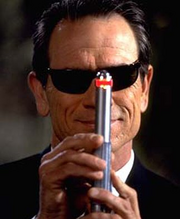I discovered miss Fahr Sindram, a mid 30 year old from Germany on DeviantArt in 2012. Since then she has been a constant inspiration to me. Her real profession is a children`s book writer/illustrator, and manga artist, but ever since her cosplay of the Marvel character Loki went viral, she is now more popular for being that– a world famous cosplayer.
She doesn`t always make her own costumes, but she always credits the makers, which is always a good sign of a good cosplayer. She also always thanks her audiences for support, especially when entering contests, which she of course has won. She has many different websites dedicated to her cosplay, as well as her work as an illustrator. One of the reasons why I love to follow her is because she truly seems to be a down to earth kind person, who always thanks her fans, makes how-to videos, shares photos of what she actually looks like (openly admitting the use of photoshop and makeup in her photos), defends people from online bullying, is a sort of humanitarian, and encourages that everyone be comfortable with themselves/their bodies no matter what. Her updates will include any number of things, current events, memes, celebrity gossip, cosutme ideas, photoshoots… she always keeps things interesting. I always love it when she tries to raise awareness on delicate issues like equality and cyberbullying. She doesn`t seem like a fake person, which is why I follow her on her many platforms.





I would really love to meet her in person! She herself was lucky enough to meet her own idols, actors Tom Hiddleston, Chris Hemsworth, as well as the Thor movie producers etc… The funniest thing is, that the first thing she ever said to Hiddleston, was tell him to kneel to her while in her Loki costume at the German premier of the movie. And he did it!



Pinterest, Tumblr, YouTube, Twitter, Facebook, Losing Neverland, etc…
Edit: I forgot to mention that I also admire her for her bravery. A bravery of being herself and fulfilling her passions regardless of what people think or say about her. Not to mention that it`s all in the public eye! It takes a special kind of person to do that 🙂







